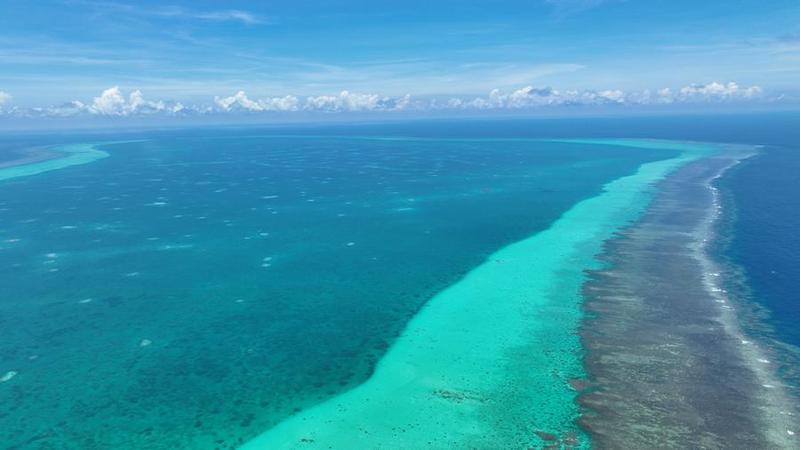Indigenous hunting traditions in sights of Taiwan’s top court
Indigenous people, who have lived on the island for thousands of years, hope a ruling in their favour will open the door to more rights.
Taipei, Taiwan – Indigenous Taiwanese are awaiting a landmark ruling from the island’s top court on Friday, which will determine the scope of their traditional hunting rights and potentially pave the way for a limited return of civilian firearms to the island after their use was sharply restricted by law in the early 1980s.
The case began eight years ago in 2013 with the prosecution of Bunun Indigenous hunter Talum Suqluman (Wang Kuang-lu) under the island’s wildlife conservation laws.
He was initially sentenced to three and a half years in prison after being found guilty of using a “modified rifle” to kill two protected animals, although the term was suspended in 2017 following an international outcry.
But the hunter continued to fight his conviction – represented by Taiwan’s Legal Aid Foundation.
Earlier this year, Taiwan’s Constitutional Court heard from several plaintiffs on whether the island’s wildlife conservation laws unduly restricted the rights of Indigenous people who claim hunting as an important cultural practice and are allowed to carry out small scale hunts.
On Friday afternoon, the top court will rule on whether Indigenous hunters should be restricted to using homemade guns and traps to kill animals, and whether they should be required to apply for government permission ahead of their hunt.
Taiwan’s Legal Aid Foundation told Al Jazeera the laws are both impractical and conflict with traditional customs protected under the island’s Indigenous People’s Basic Law.
“The Wildlife Conservation Act regulates Indigenous hunters who have to file an application and report how many and what kind of animals they’d hunt beforehand, which violates the traditional laws that prey is the blessing of the ancestral spirits so one must not boast and show off otherwise one shall be punished by god,” the foundation’s Legal Center of Indigenous Peoples said.
“Also, we can’t help but wonder in the unpredictable environment like forests how one can foresee what prey that will hunt.”
Paiwan hunter Baubu Caljas leads a group through the forest in Pingtung County in southern Taiwan. Hunters like Baubu say animal populations have recovered and are now easy to find near hiking paths and rural communities [Courtesy of Joshua Yang] Taiwan recognises 16 Indigenous groups whose ancestors had been living on the island for thousands of years before the first ethnic Han began arriving from mainland China in the 17th century and the Republic of China government set itself up on the island in 1949.
“Hunting is an integral part in our Indigenous culture,” said Baubu Caljas, a Paiwan hunter who leads an Indigenous youth organisation in southern Taiwan. “The offering of animals is often the most important process in our traditional religious rituals, which includes funerals, harvesting festivals, and prayers.
“I think it is unfair to even have to ask the government for the ‘legal right’ to hunt. The [Republic of China] government took over our homeland a few decades ago. We, the Indigenous people of Taiwan, have existed on this island living with our lives for millennia. Did the government ask for the “right” to rule over us when they took control?”
Traditional hunting
Taiwan’s Ministry of Agriculture has expressed concern that relaxing laws will lead to a return to overhunting in Taiwan, where local species were once hunted to the verge of extinction.
For 300 years animals, including the tiny muntjac deer and monkeys were hunted for their fur, which was mostly exported.
Most hunting was brought to an end with a moratorium in the early 1970s, during the island’s martial law era, but it persisted on a smaller scale to supply demand for game meat, mostly among ethnic Han Taiwanese, according to wildlife conservation expert Kurtis Pei.
It was not until 1989’s Wildlife Conservation Act that commercial hunting was formally banned. Since then, populations of monkeys, muntjac and sambar deer have begun to recover, according to Pei.
Paiwan hunter Baubu Caljas prepares a mutjack deer that he killed earlier in the forest. Indigenous people are the only Taiwanese permitted to hunt but they been restricted to using traps and homemade guns [Courtesy of Joshua Wang] Indigenous hunting, unlike commercial hunting, is only carried out on a subsistence level or to prevent animals from eating crops and has not hindered the species’ recovery.
“The thing outsiders most misunderstand is they think we kill indiscriminately, everything we see,” said Silan Oyon, an Amis-Atayal hunter who teaches a hunting class in Wulai, a district of New Taipei City known for its hot springs and mountain scenery.
“Hunting is not something we do on a whim. We follow the seasons, alternating between the mountains and riversides. Han (ethnic Chinese) people think we spend all day, every day, hunting.”
With animal populations booming in the past 20 years, Baubu says a limited amount of hunting has now become necessary to maintain an ecological balance.
“For us who live so close to the mountains, it is quite obvious that the numbers of wildlife are getting a bit out of control. Without any predators in the current ecosystem, these animals are reproducing rapidly and the plant density overall is decreasing,” he said.
“Now you have muntjacs coming down to the plains, barking at night in the community. With vegetation gradually disappearing, we also see a higher frequency of landslides in recent years. On the other hand, you have a decline in hunting activities as a result of generational cultural loss. I think it’s not hard to see that Indigenous hunting only affects a negligible fraction of a thriving wildlife population.”
Natural revival
Unlike Taiwan’s current application-based system, Indigenous hunters and experts say they would prefer a hunting management system that gives local communities more control over the management and monitoring of hunting activities.
“The key is to create some kind of institution where hunters in each locality can manage the hunting locality themselves. They’re already doing it, but it would be good if there are some incentives to make it more formal,” said Scott Simon, co-holder of the chair of Taiwan Studies at the University of Ottawa, Canada, who spent several years living with Indigenous communities in southern and eastern Taiwan.
Some semi-official collaborations have already seen results.
Pei, who is also a professor at the Pingtung University of Science and Technology in Taiwan, has worked closely with hunting associations as part of his conservation research. Indigenous communities in central Taiwan’s mountainous Alishan Township, meanwhile, have had some success working with the Forestry Bureau, according to Babua, who said he hoped to see hunting managed through more collaborative associations.
Under the current rules, Taiwan’s Indigenous people use homemade and modified weapons that sometimes leave animals facing a long and painful death [File: Sam Yeh/AFP] One sticking point, however, is weapons.
At the moment, hunters use homemade guns, usually fashioned from devices like modified nail guns or muzzle-loading rifles that require hunters to add gunpowder to fire each shot, according to Taiwan media.
But they say such weapons are both dangerous and cruel because they can easily misfire or leave an animal facing a painful death.
“[Ethnic] Han people will sometimes come across a dead animal in the mountains left for dead and share the photo, saying [Indigenous] people are wantonly killing,” said Silan. “Actually, it’s because our guns aren’t good, not like foreign hunters’, prey might run for a long time after being shot. It can take several shots to kill, which is more cruel.”
Due to safety concerns, the Ministry of the Interior has said it may consider allowing Indigenous hunters to purchase registered firearms, according to Taiwanese media.
If the amendment were to pass, Taiwan’s government would then be in the unique position of expanding gun rights, albeit on a small scale, where most places have sought to restrict them.
Most civilians are prohibited from owning firearms, including handguns, rifles and shotguns under Taiwan’s firearms legislation. Beyond Indigenous hunters, only fishermen can apply for permission to own a harpoon gun.
The Legal Center of Indigenous Peoples has said the top court’s decision on Friday could go far beyond gun rights and have major repercussions for Indigenous rights in Taiwan.
An Indigenous village celebrates after a hunting festival at Chishang township, Taitung county [Sam Yeh/AFP] Although the communities are protected by a number of laws, they do not enjoy the same level of protection as Canadian First Nations or New Zealand’s Maori.
The administration of President Tsai Ing-wen, the first leader to have some Indigenous ancestry, has shown an interest in extending Indigenous rights.
Activists hope a ruling in the communities’ favour could help further that cause.












